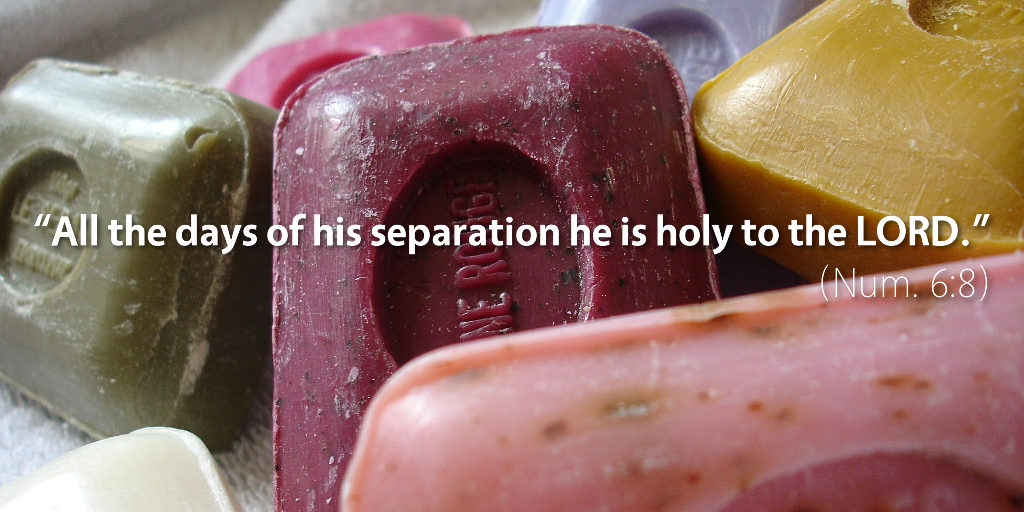Bible Readings for April 29th
Numbers 6 | Psalms 40–41 | Song of Songs 4 | Hebrews 4
One major theological distinction that comes up repeatedly in the book of Numbers—and one that we are likely to miss unless we are looking for it—is the difference between clean and holy. The words are not interchangeable. We had talked about this distinction in our meditation from Leviticus 11–12, and the subject arises again in our reading today from Numbers 6.
For Yahweh to dwell in the midst of his people in his tabernacle at the center of the camp, he commands that everyone in the camp be clean so that uncleanness would not “defile their camp, in the midst of which I dwell” (Num. 5:3). Clean is the minimum requirement for general proximity to a holy God, and so everyone in the camp must be clean.
But not everyone is considered holy. Holy is a different category altogether. Even among the Levites, only the priests are called holy. The other Levites are only cleansed (Num. 8:5–22), while the priests are consecrated (lit., “made holy”; Ex. 28:41) and declared “Holy to the LORD” (Ex. 28:36) to execute their duties.
What all this means is that, under the Mosaic Covenant, holiness was not an option for any but the priests—with one major exception. This is where the Nazirite vow from Numbers 6:1–21 comes in. With a Nazirite vow, anyone (male or female) could voluntarily undergo a vow of separation unto Yahweh, during which time that person is “holy to the LORD” (Num. 6:8), the exact title that priests were given.
We don’t read anything to suggest that the Nazirites were allowed into the temple as the priests were, but the Nazirites were nevertheless holy. In spite of the strict divisions, separations, and classifications of Israel’s camp in Numbers, the Nazirites were given direct access to Yahweh through their holiness in a way that the other Israelites did not share.
Of course, Yahweh’s intention was never to create an elite division of Israelites in order to separate the dedicated from the insincere. To keep us from getting that idea, Yahweh moves straight from speaking about the Nazirites to telling Aaron how to bless all the people by putting his own name on them.
The picture that continues to unfold illustrates Yahweh’s care to guard his own holiness, while at the same time extending the original boundaries in order to dwell in the midst of his people. In yesterday’s reading, Yahweh pushed lepers out of the camp and taught how to test a woman’s innocence from adultery. In today’s, Yahweh creates a means for becoming holy and places his name upon his people through a special, high priestly blessing.
And in this way, the theology of Numbers teaches something important about who Jesus would be: Our Lord came both to associate with unclean sinners and to make them radiantly holy through his sovereign grace.
Podcast: Play in new window | Download (5.5MB) | Embed
Subscribe: Apple Podcasts | RSS | More

Scripture quotations are from The Holy Bible, English Standard Version copyright © 2001 by Crossway Bibles, a division of Good News Publishers. Used by permission. All rights reserved.


